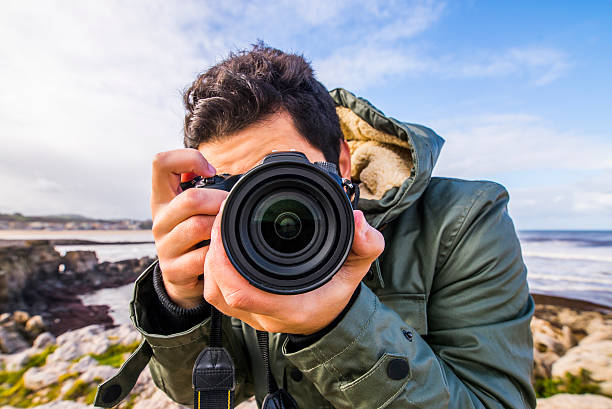Digital photography has led to a boom in photography as an art form and a career. It is now straightforward to become a photographer. You can purchase a camera and some equipment and learn photography through various free online courses. You can also practice your photography or find a specific niche. It is possible to find the answer to your question about how to become a photographer.
This is a guide to becoming a professional photographer.
Ask the right questions.
Professional photography is a great career choice if you can balance your entrepreneurial spirit with your passion for photography. Before you start your photography career, ask yourself a few questions, make a list, and set some goals.
Find a mentor for photography.
Online and offline research will answer most of your questions about how to be a great photographer. Attend photography seminars, exhibitions, and talks. These events are a great way to meet photographers and get their answers. You can join a variety of photography communities. You will find some of the answers you seek through structured education. Others will only be revealed with time and experience.
Get the proper education in photography.
Professional photography is one of the few professions where formal training is optional. You can learn independently, practice, and improve skills without attending a legal education institute. It can be a valuable addition to your professional career.
Many professional photographers have studied photography in top photography schools or at design institutes. A photographer must have an eye for detail, creativity, and technical skills. Here are a few easy steps to help you get started.
Take a photography internship with a professional photographer.
You can network with professional photographers and mentors as a young photographer. People skills are critical. As a professional photographer, developing technical skills, such as good communication skills, flexibility, and patience, are essential. Feel free to ask for feedback on your work. Your work will determine your income. You can see an example of the best wedding and lifestyle website templates.
Find your focus area.
You will learn more about photography through your education and internships. This will help you better understand what kind of photographer you would like to be. Now is the time to define your photography style, find your niche, and focus on your desired genre or style. You can focus on portraits, fashion, fine art, documentaries, weddings, or commercial photography. It would help if you researched the niche you wish to specialize in. For example, you may want to be a wedding photographer.
Choose the best camera, lenses, and photographic equipment.
Only buy some of the expensive gadgets to take high-quality photos.
You can purchase second-hand gear in good condition or slightly older camera models or lenses. You should invest in a DSLR camera to get started in professional photography. It’s unnecessary to buy the most expensive model to create. Some photographers consider SLR cameras to be a better way to learn photography. Make up your mind by reading this article about SLR cameras vs. DSLRs.
Check out this list of the best cameras for amateur photographers. Check out this list of cameras for amateur photography. Lenses are an area that people often waste money on. Choose your lenses wisely to serve you well in all your work situations. Also, invest in post-production hardware and software. You will need a calibrated monitor and the correct editing software for professional photography.
Practice, Practice, and Practice
All of a sudden, it all starts to make sense. It is important to continue honing your skills and practice different aspects of your specialization in photography. You should become familiar with your camera and all of its equipment.
Shoot pictures every single day. You will only get better if you practice. Create a schedule for managing your projects. Start a 365Day Project. Create boards on Pinterest and curate the best photos that fit a particular style.
Create your Photography Portfolio
Your photography portfolio will be essential to help you become a professional photographer. A strong photography portfolio is a great way to get ahead in the business, as potential clients will evaluate your abilities and talents based on it. Choose your best photos that showcase your entire range of work. Make sure your portfolio attracts new clients.
Create your online portfolio website.
It is essential to create your portfolio website to gain exposure, reach out to potential clients, and have them see your work. Your photography website can be your window to new opportunities and help you win clients and projects outside your local area and network when people search for a “professional photographer near me.” Your website, branding, and content should reflect what you do to attract the right customers. Look at how top photographers present their portfolios – take a look at the photography website portfolio.
Set your photography pricing.
Calculate all of your costs, including profit margins, before deciding on the price for your photography. Do your research on the best professional photographers in your field and area, but also consider the value you can bring. Have a range of prices and be flexible. Be careful not to undercut your competitors too much to win projects. Also, beware of overpricing clients and losing them. You can also create templates for contracts with clients.
Promote your photography business.
After you have your online portfolio, it is time to market yourself. You can market yourself in several ways as a photographer. You can take part in photography competitions to gain exposure. You can also participate in local exhibitions and email clients about your services.
Join associations of professional photographers.
It is a good idea to join professional photography associations. There are many associations, groups, and networks for photographers. You can connect, learn and expand your network by joining groups of professional photographers. Join as many groups as possible to start networking with other professional photographers and learn from them.
Professional photographers are available to teach you their techniques.
You can find professional photographers in your area by searching for ” professional photographers near me.” Research their services and pricing packages. Find out if the photographer is a member of professional photography networks or associations and how they market their business.
Build your client relationships.
Clients seek photographers who can deliver the job professionally and on time. The key to your success is managing the client relationship. It is essential to set the right expectations and have a contract that clearly defines the scope of the work and the deliverables for each project. Be sure it’s a win for both parties!
The right tools are very useful in managing clients. Pixpa Client Gallery, for example, allows you to share, edit, proofread, sell, and deliver your work. And Jotform is a tool that will enable you to manage photography contracts and forms. You can embed these into your portfolio website.
Tip: To be a successful photographer, you must retain clients. Always be professional, have realistic expectations, and strive to produce your best work.
Develop your photography business.
The number one priority for you is to expand your photography business. Your choices and actions will determine your success. The type of work you do, the clients you work for, how you price your photography, and the area in which you operate are all factors. Be consistent in your marketing, meet new people, and, most importantly, retain old clients.



